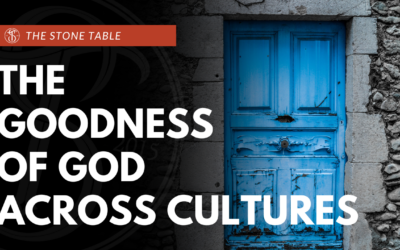What is missiology and why is it important today? Let’s talk about it.
“I use the word missiology in a board meeting one time, and one of our board members kind of teased me about making up a new word. It was a word that he wasn’t familiar with. So, missiology really is the study of missions or Christian missions and mission strategy. And I believe missiology is something all of us as followers of Jesus need to not only be cognizant of but have a fully formed missiology, no matter what sphere of this life in this world that we work in.
So recently, Pastor David Wigginton and I sat down and had about an hour’s worth of missions and missiology discussion. And today, we’d like to share another clip of that conversation with you, Marketplace skill.
Let’s talk a little bit about some statistics here because I think this is an important conversation. Sure, and some of these kind of shock people when we share them, right? But when Jesus said, ‘Go and make disciples of all Nations,’ the word ‘Nations’ here is actually the Greek word ‘ethnay.’ Now, I didn’t go to Seminary, so you can correct me if I’m wrong, but it’s the Greek word ‘ethnay,’ which actually means it’s not a nation-state like we would think of nation-states. It’s actually, people groups. It’s people who share common customs or a way of life, right? So when we look across the global landscape and we look at Jesus’s call to go and make disciples of all ethnay, of all people groups, talk to me about who has not been reached. Yeah, so let me give you just, if I can, a 45-second history of global missions to get into that.
So global missions, as we know it today, really started in the 1700s. One of the guys at the center of that was a guy by the name of Captain Cook, and he was a guy who went out and charted a lot of the waters and stuff. But what he learned was, as he went to some of these port cities around the world, none of them knew about his native Christian religion, you know, the religion that he practiced in England. And so, he came back and really started to fan the flames of, ‘We’ve got to go to these coastal cities. There are coasts all around the world that can be accessed by boat, where there are people who don’t know Jesus.’ And so that was where the coastal mission started, and the Anglican Church in England sent out missionaries all across the known world to port cities around the world and began to reach people for Jesus, plant churches, etc.
And then, after about 30 years, we were making some progress, interest in that. And you get to the mid-1700s, and they started to realize, ‘Well, wait a minute, Africa is a huge continent, and if you reach a port on one side of Africa and a port on the other side, one missionary said, ‘I can stand in one place and I can see the smoke of the chimneys of a thousand villages in which not one person knows the name of Jesus, and that ought not to be.’ And so that started the inland missions movement that still survives today. The Africa Inland Mission is still a thriving Mission sending organization today. The China Inland Mission, where we’ve started to send missionaries to the inland parts of the continents to reach the inland places. And that really continued through the 1800s into the 1900s.
And you get into the 1970s, really, that’s the movement, the inland mission movement, that was to reach all of the people, all of the nations. But then what happened was in the early 1970s, 1974, I think it was, there was a Lausanne Conference, and a guy by the name of Ralph Lyncher gets up to share, and he’s like, ‘Look, we’ve done this, but we’ve checked some boxes. To talk about checking boxes, we’ve checked some boxes we ought not to check.’ In other words, we’ve said, ‘We’ve reached Kenya because there are thousands of churches in Kenya.’ But the problem is, there are Somalis in Kenya who’ve never heard. There are people groups in Kenya who’ve never heard the name of Jesus. So we’ve got to uncheck that box. Yes, there are churches in Kenya, and we’ve reached the nation of Kenya. But it was really simplistic to say, ‘Well, we went inland. We reached the nation of Kenya. We reached the nation of DRC. We reached the nation of China or Russia.’ But the reality was there were still people groups, ethno-linguistic groups amongst those nations that had no gospel presentation, no gospel representation whatsoever.
And so that really started the third major phase of modern missions. You had the coastal movement, the inland movement, and then what has really, from the ’70s, become the people group movement. And so we talk a lot about unreached people groups. There are 7,000 roughly unreached people groups. That means they share an ethnicity, a language, or culture that is unique to them. And in those 7,000 unreached people groups, those ethnic linguistic groups, there is no adequate representation of the Gospel. The way I like to say that is, we’re here in Indiana. If a 22-year-old girl goes to sleep tonight and has a dream about Jesus and she wakes up, there are a lot of places in Indiana you can go and ask somebody who Jesus is. No doubt. There’s a lot of churches in Indianapolis, 440 churches in Indianapolis, the city of a million people. You go to Al Yahada, Yemen, about the same size town, there’s one church, and you have to show a passport at the door that shows you’re not Yemeni to get in. So if a 22-year-old Yemeni girl in Al Yahada has a dream about Jesus, there’s no place she can go and ask, ‘Who is this person I dreamed about?’ That’s what it means to be unreached. Now, again, another distinction that’s important, there are a lot of unchurched people in America. Sure, you probably have neighbors that are unchurched. I have neighbors who are unchurched. There’s a difference between unchurched and unreached, right? Unchurched means they don’t go to church. They may be heathens. They don’t know Jesus. They may be awful people. I don’t know, but they’re unchurched. Unreached means they have no access to the church. There is no church where they live. There is no pastor who speaks their language natively. There’s not, for many of them, there’s not a Bible in their mother tongue, in their heart language.
So, 42% of the eight billion people who walk the face of the Earth, so not quite half, but a massive, massive number, billions of people. And it’s one of those crazy things, like, if we were to talk about how to reach them and, you know, if we were to rent out Lucas Oil Stadium, you know, Lucas Oil Stadium seats 75,000 people, maybe 80,000 people. And, you know, if we had a Billy Graham kind of person come, and 80,000 people got saved every night in a crusade, that’d be pretty awesome, right? That’d make the news, like, 80,000 people get saved every night. You’d only have to do that for about 300 years before you’d come close to getting to that 2% number around the world. But here’s the cool part is, if there are 50 people that watch this video and each of them won one person to Jesus next year, and the year after that, everybody won another person, and the year after that, everybody won another person, we’d get there in a little over 20 years. Wow, and so that’s how we do it, by winning people to Jesus, by sending missionaries face to face, yeah, to have coffee with people, to work out with people, to go on bike rides with people. I got a friend who’s just going on a bike ride across the whole country of Israel with some Israeli friends, and he’s like, ‘We’re on this bike race, we’re on this cross-country bike race, but I’m talking about Jesus the whole time,’ you know? That’s how it happens, one at a time, winning disciples, and those disciples making disciples. That’s the only way we’re ever going to get ahead of that curve.
Yeah, because right now we’re not even keeping up with the birth rate, right? The world’s growing so fast that we’re not even, the church as a percentage of the world, is shrinking. We’re not even keeping up with the birth rate, so 7,000 unreached people groups, 42% of the global population, three-plus billion human beings, don’t have access, right? And I think that needs to shake every one of us. I would say, and I’ve offended some people with this, but I think this is the biggest Injustice issue in the world today.”



